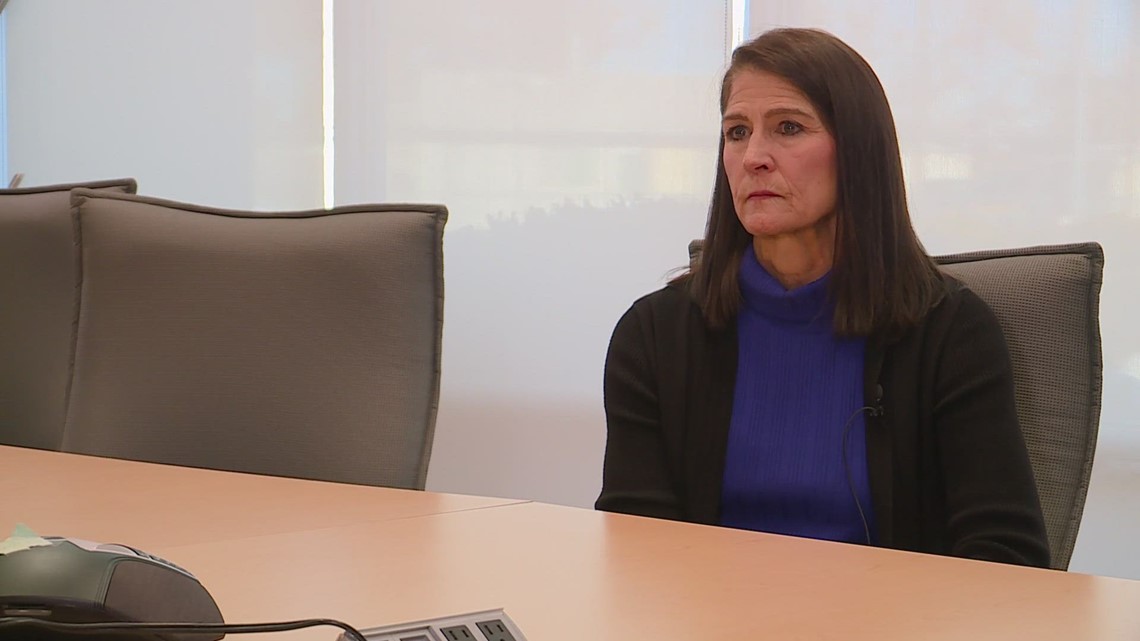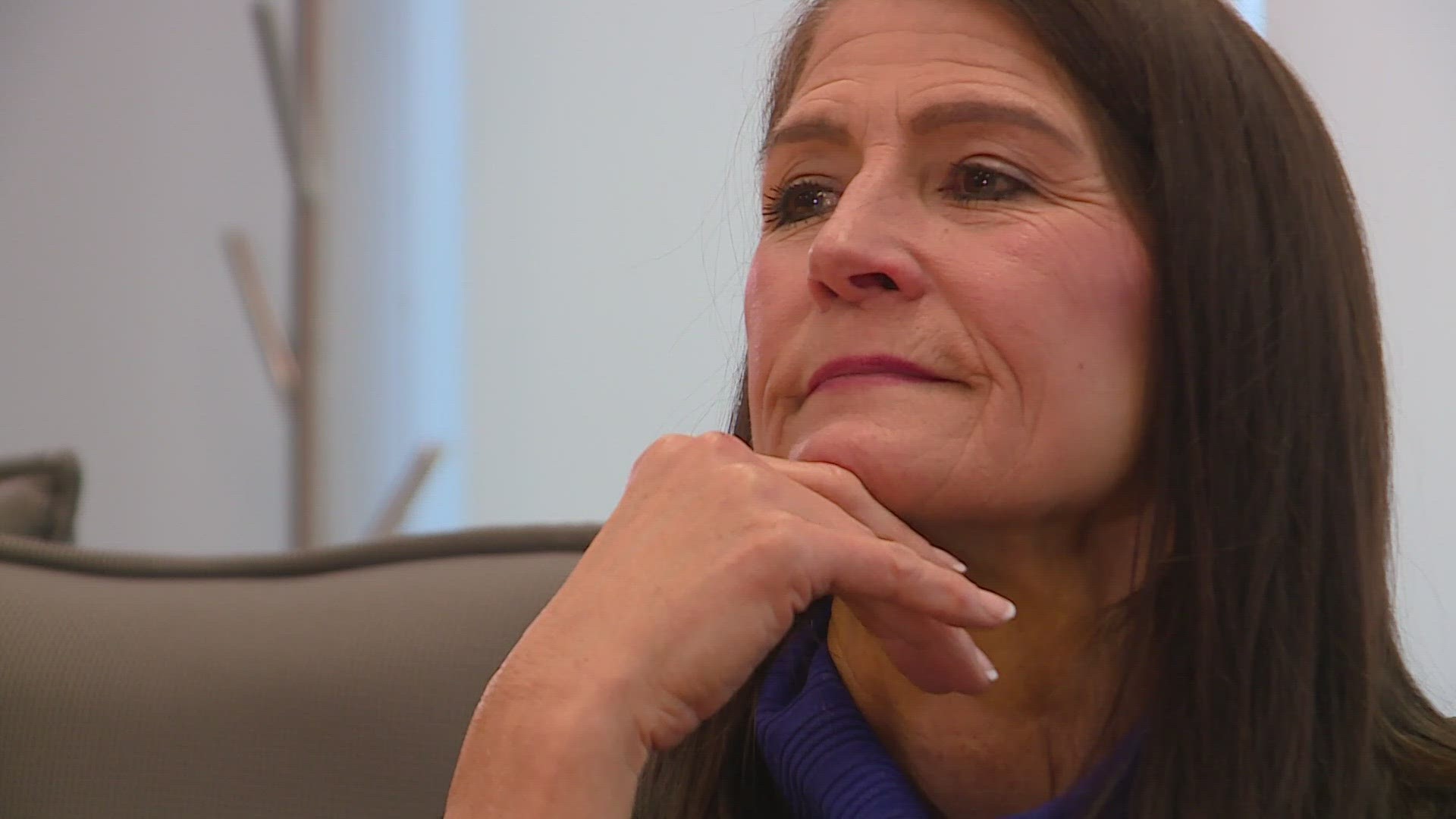COLORADO, USA — A former DNA analyst with the Colorado Bureau of Investigation (CBI) manipulated DNA results and "cut corners" according to an internal affairs investigation – and as a result, all of her work at the agency over nearly 30 years has been called into question.
So far, CBI's quality management team has found 652 cases between 2008 and 2023 that have been affected by Woods’ data manipulation. There could be more cases added to the list, as the agency is still reviewing her work from 1994 to 2008.
In September, CBI launched a review of testing done by Yvonne "Missy" Woods, who worked at the agency for 29 years. That month, CBI became aware that DNA sample testing performed by Woods may have "deviated from standard operating procedures."
In October, she was placed on leave and performed no additional work before she retired the following month, the CBI said Friday.
The internal affairs investigation found that Woods "manipulated" data in the DNA testing process and posted "incomplete test results" in some cases. That discovery puts all of her work in question, the CBI said. They're currently reviewing all of her work.
Ryan Brackley, an attorney for Woods, released a statement following the investigation results were published.
“While the allegations resulting from the internal investigation point to Ms. Woods deviating from standard protocols and cutting corners in her work, she has long maintained that she’s never created or falsely reported any inculpatory DNA matches or exclusions, nor has she testified falsely in any hearing or trial resulting in a false conviction or unjust imprisonment," Brackley said.
"To the extent that the findings of the internal investigation will call her good work into question Ms. Woods will continue to cooperate to preserve the integrity of her work that resulted in true and just criminal justice findings.”
According to the investigation, Woods did the following:
- Omitted material facts in official criminal justice records
- Tampered with DNA testing results by omitting some of those results
- Violated CBI’s Code of Conduct and CBI laboratory policies ranging from data retention to quality control measures
The agency also detailed how she allegedly manipulated results. Those findings are below.
- Deleted and altered data that concealed Woods’ tampering with controls
- Deleted data that concealed Woods’ failure to troubleshoot issues within the testing process
- Failed to provide thorough documentation in the case record related to certain tests performed


CBI said the manipulations appeared to be "intentional conduct" on the part of Woods. They don't believe she falsified DNA matches, but instead deviated from standard testing protocols and cut corners, calling into question the reliability of the testing she conducted.
According to CBI’s policies and procedures, Woods should have conducted additional testing to ensure the reliability of her results in these affected cases.
CBI said it will continue reviewing and instituting improvements to lab policies and testing protocols to prevent this type of manipulation from occurring in the future.
The Kansas Bureau of Investigation worked with CBI to ensure an independent evaluation. CBI also asked the South Dakota Division of Criminal Investigation to handle a separate criminal investigation into Woods. That is still ongoing.
"It's fairly bad whenever you have a lab analyst who alters data in a forensic case file," said Phil Danielson, a DNA expert witness. "That is bad."
Danielson wants to know how this internal review at CBI began. He said every DNA analysis report is reviewed by a separate analyst and then it goes through an administrative review.
"Yet CBI is now telling us in spite of this review process they now have hundreds of cases where misconduct by Missy Woods went undetected," Danielson said. "How is that possible?"
CBI sent a letter to every district attorney in Colorado this week to inform them that findings in the internal affairs investigation could impact Woods' credibility as a witness in criminal trials. District attorneys want more specifics, and at this point, they don't know how many cases could be reopened.
"It's a ton of work and it's deeply frustrating," said District Attorney Brian Mason in Adams County. "These are cases we have already worked hard on to secure convictions, and it requires us now to not only review those cases and determine whether or not they need to be relitigated in any way, it means calling victims and victims' families and explaining to them the case that was resolved years ago may not be resolved anymore."
"We are very concerned about the findings regarding Former Agent Woods by the CBI investigation, particularly when words like 'omitted' and 'tampered' are used," said District Attorney Michael Rourke in Weld County. "We continue to try and obtain more specific information about these omissions evidence which was tampered with. Until we receive that information, we are still unable to fully ascertain the impact on individual cases or the long-term impact on the criminal justice system as a whole.”
In February, the Colorado Department of Public Safety requested nearly $7.5 million in additional funding to retest samples. Some of that funding would also go to potential reimbursements for post-conviction review and retrial costs.
The Office of the State Public Defender (OSPD) said in a statement that the investigation impacts current cases and will likely result in closed cases being reopened. OSPD said that "the lack of transparency from the CBI about this matter is extremely concerning."
"One of the most pressing questions is whether any person has been wrongly convicted as a result of misconduct," the statement says. "CBI and other law enforcement should be immediately forthcoming with the public and the people directly impacted by the misconduct and possible crimes committed by the DNA analysts they employed."
CBI is also engaged in an audit of all DNA analysts to ensure the accuracy and completeness of their entire catalog of records. During that audit and review process, CBI found that an analyst employed by the Weld County Sheriff’s Office at the Northern Colorado Regional Forensic Laboratory may have also manipulated DNA testing data. CBI referred the case to the Weld County Sheriff’s Office.
Last week, the sheriff's office announced they fired Chiara Wuensch after an internal investigation into her casework. They only said "anomalies" were found in her work and that she was fired because she violated the Weld County Code for expectations of proper conduct, and the sheriff's office's standard of conduct policy for not cooperating with the investigation.
SUGGESTED VIDEOS: Investigations & Crime

